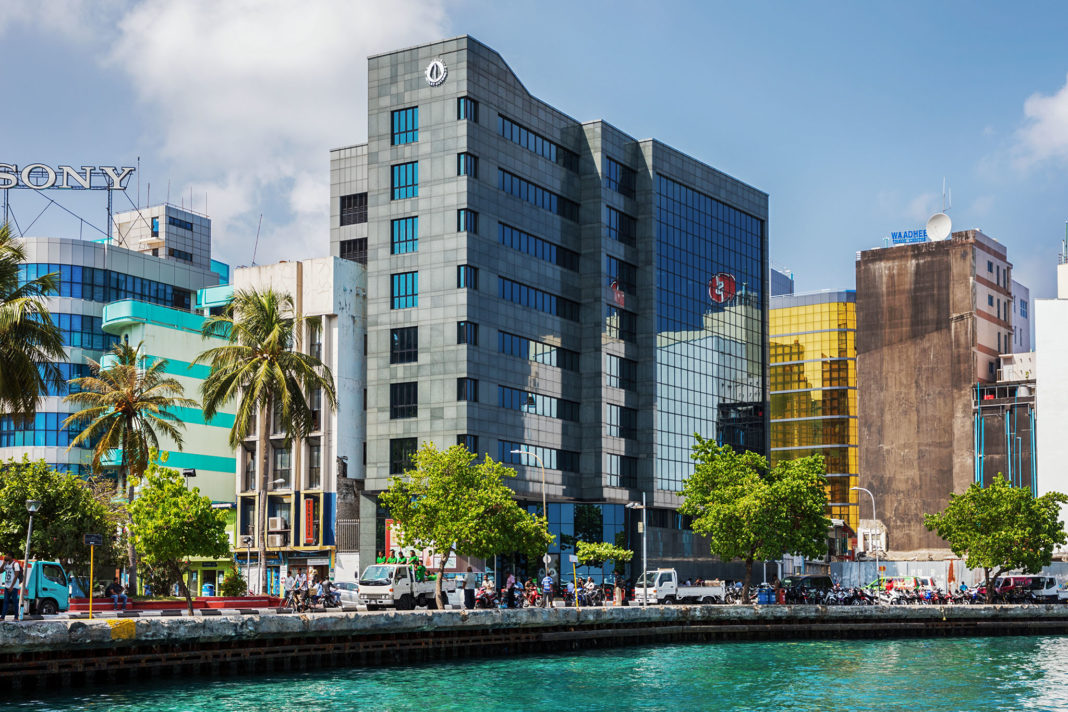The financial sector of the Maldives comprises of commercial banks and non-bank financial institutions. The non-bank financial institutions include insurance companies, a finance leasing company, a housing finance company, money remittance companies and payment service providers, the pension fund and companies operating in the capital market. The Maldives Monetary Authority and the Capital Market Development Authority are the regulators of the financial sector of the country. The CMDA is responsible for regulating and developing the securities market and the pension fund, while all the other financial institutions and service providers are licensed, supervised and regulated by the MMA.
Maldives Monetary Authority
The Maldives Monetary Authority is the central bank of the Maldives and the main regulator of the financial sector. It was established on 1st July 1981, under the mandate provided by the MMA Act (1981).
Monetary Policy
The MMA is responsible for the formulation and implementation of monetary policy in the Maldives. Under the MMA Act (1981), the main objective of monetary policy is to achieve price stability and to maintain an adequate level of foreign exchange reserves. Under the current monetary policy framework, the MMA uses a fixed exchange rate system with the US dollar as an intermediate target to achieve its policy objective, and in turn intervenes in the foreign exchange market to keep the exchange rate pegged within a stipulated band. The main monetary policy instruments of the MMA are the minimum reserve requirement, open market operations, foreign currency swaps and the standing facilities: the overnight deposit facility and the overnight lombard facility. All monetary policy decisions are made by the Board of Directors of the MMA after reviewing the macroeconomic conditions and recommendations made by the Monetary Policy Committee of the Authority.
Capital Market Development Authority
The CMDA was established under the Maldives Securities Act in 2006 as the securities market regulator. The capital market regulatory framework in the Maldives allows for issuance of equity securities, both conventional and Islamic, debt securities and Sukuk. Most companies are listed with equity securities on the Maldives Stock Exchange, and the corporate debt market is mostly untapped with just one company listed with debt securities and one with Sukuk. All listed companies are mandated to comply with the corporate governance code which was introduced in 2008, and is also open for voluntary adoption by private companies.
As the Maldives continues its membership with the International Organisation of Securities Commission (IOSCO), the international standard setting body for the securities market worldwide, the CMDA complies with the IOSCO standards and international best practices to strengthen the regulatory framework of the Maldives capital market. The Islamic finance industry in the Maldives is evolving at a steady pace, and the capital market development master plan also focuses on promoting issuance of Sukuk. The pension fund, the Hajj fund, AyadiTakaful, AmanaTakaful Maldives, BML Islamic, Maldives Islamic Bank, and HDFC Amna are the major institutional investors in the Islamic finance industry.
The capital market of the Maldives made remarkable improvements over the recent years. In addition to attracting new issuers, especially during the past year, the issuance of the investment fund regulation in 2016 has broadened the attractive foreign investment opportunities in the Maldives. Furthermore, as a result of the scattered nature of the Maldivian population and to seize the opportunity from the widespread cellular internet connectivity in the Maldives, the Maldives Securities Depository Company launched an online platform called “Infinity” in 2017, which facilitates investors to submit their subscription applications online.















